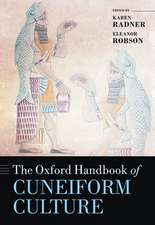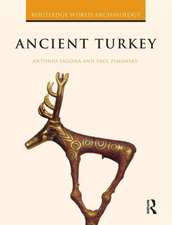Turning Points in Japanese History
Editat de Bert Edstromen Limba Engleză Paperback – 18 iul 2016
Preț: 416.22 lei
Nou
Puncte Express: 624
Preț estimativ în valută:
79.65€ • 83.54$ • 66.30£
79.65€ • 83.54$ • 66.30£
Carte tipărită la comandă
Livrare economică 01-15 aprilie
Preluare comenzi: 021 569.72.76
Specificații
ISBN-13: 9781138986268
ISBN-10: 1138986267
Pagini: 262
Dimensiuni: 156 x 234 mm
Greutate: 0.45 kg
Ediția:1
Editura: Taylor & Francis
Colecția Routledge
Locul publicării:Oxford, United Kingdom
ISBN-10: 1138986267
Pagini: 262
Dimensiuni: 156 x 234 mm
Greutate: 0.45 kg
Ediția:1
Editura: Taylor & Francis
Colecția Routledge
Locul publicării:Oxford, United Kingdom
Public țintă
UndergraduateNotă biografică
Bert Edstrom is senior research fellow, Japan Section, Goteborg University. His research deals with Japanese foreign policy and international relations.
Cuprins
Introduction, Bert Edström; Chapter 1 Bukky? Denrai, Maciej Kanert; Chapter 2 1247 as a Turning Point for the Kamakura Shogunate, Kondo Shigekazu; Chapter 3 A Turning Point in Court–Bakufu Relations During the Edo Period, Valdo Ferretti; Chapter 4 The Starting Point of Modern Japanese–Korean Relations, Lionel Babicz; Chapter 5 Deliberate Non-Communication, Arjan Van Der Werf; Chapter 6 Rescuing the Prisoners of the Maria Luz, Igor R. Saveliev; Chapter 7 The Ending of Extraterritoriality in Japan, Ian Ruxton; Chapter 8 Maruyama on Kaikoku, Joel Joos; Chapter 9 The Meiji Constitution as Miscalculation, Alistair D. Swale; Chapter 10 The End of World War One as a Turning Point in Modern Japanese History, Dick Stegewerns; Chapter 11 Takahashi Korekiyo’s Fiscal Policy and the Rise of Militarism in Japan During the Great Depression, Richard J. Smethurst; Chapter 12 Japan and Islam Policy During the 1930s, Selçuk Esenbel; Chapter 13 Japan’s Foreign Policy and the Yoshida Legacy Revisited, Bert Edström; Chapter 14 The Beginning of the End? The Problem of Imperial Succession in Modern Japan, Ben-Ami Shillony;
Descriere
The book is organised thematically, including Medieval and Early Modern Japan, Japan and the West, Contested Constructs in the Study of Tokugawa and Meiji Japan, and aspects of Post-War Japan.
















